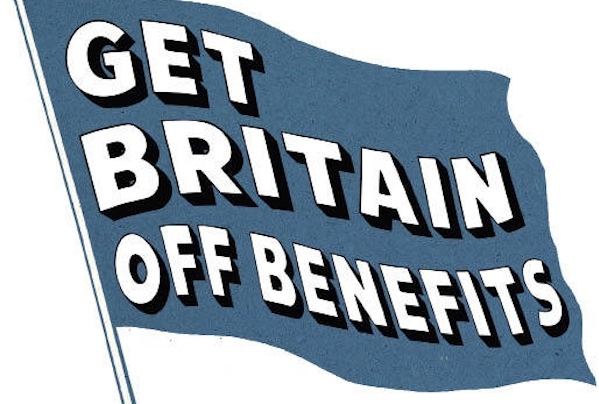It is fascinating watching the great welfare debate as the universal credit starts its life. The ruling elites have very, very slowly caught up with public understanding. The simplest way to think about the question is this. At every level of society people tend to be acutely aware of what their approximate equals are paid, and usually unaware of what those richer or poorer receive. Therefore the people who best understand how welfare works are either its recipients or those who work on low wages and are scarcely better off for doing so. These people recognise that being on welfare is — in effect, though not morally — like having a job. There is a wage for it, plus various equivalents of overtime and fringe benefits, and the task is to get as much of these as you can. One effect of this has been to destroy the working class. Its more enterprising members have become middle class and the rest have discovered that they can live by not working. The Labour party, as its name suggests, was historically the party of work. It does not seem to realise (though the Blairites half did) that the benefits it defends will therefore be the death of it.
Not that the Conservatives are much further advanced. The essential point about welfare benefits, if they are not to have perverse effects, is that they should be lower. The only benefits which should be higher are those, most notably old-age pensions, which are contributory. This still cannot quite be said directly by politicians. Give it another five years.
Now that my biography of Mrs Thatcher (volume one) has appeared, I sign copies. It is a surprisingly physically difficult operation. If the author has to take up each book, open it, and hold down the board so that he can sign, it is slow work. Ideally, he needs someone to open the book and pass it to him and possibly another to write out on post-it notes the inscriptions that customers want. One can then hit about 100 signatures an hour, and find time to look up and smile at each purchaser. One or two customers in each signing, I find, are insistent that their name should not be written in. At first I thought this was because they wanted to give the book to a friend, but then I realised that most who intend to do this ask for the friend’s name to be inscribed instead. The more likely reason is that they intend to sell the signed copy on eBay. The book, whose standard price is £30, has been offered there — and apparently sold — for £69. The rational thing for me to do would be to buy up my own book at a bulk discount, sign hundreds of copies, and then start selling them.
At the book’s launch, I was flattered to see Michael and Anne Heseltine joining the signing queue. It was very sporting of him. When they reached me, Anne asked for my inscription, but Michael said he wished his copy to be blank so that he could quickly sell it. I think — unusually for him — that he misunderstands the way this strange market works.
The most common question I am asked by audiences about Mrs Thatcher is something to do with Carol and Mark. Did she bring them up successfully? Was she a good mother? etc. The fact that this comes up so often is testimony to the point I make again and again: it was completely different — and very difficult — being the first woman prime minister. People know that the children of male prime ministers almost always have a very tricky time — look at all Churchill’s children apart from Mary Soames — but it doesn’t bother them. In the case of Mrs Thatcher, however, they come to close to using her achievements or failures as a mother as the yardstick for judging her entire career.
Those promoting books should be warned of the divine right of the Today programme. Today takes the view that if anyone has the lèse majesté to appear on any other BBC radio news programme, he must be excluded from court. Just before I went on the PM programme a fortnight ago, I was ordered on to Today for the following morning. As soon as I had appeared on PM, I was banished. Obviously great imperial systems must have their protocols, but I think the world should be informed of them. Will the BBC publicly confirm that no guest appearing on Today may appear on its other outlets?
As is well known, the Catholic Church does not permit women to be priests. It is hard to see this changing, since scripture and doctrine are so strong the other way. A friend brilliantly points out, however, that the same need not apply to cardinals. A cardinal is not an order of priesthood, but simply a prince of the Church, and there can be lay cardinals. So there is no objection, apart from custom, to female (lay) cardinals. Why not create some? Why not, over time, make more than half the papal conclave female? The chosen Pope would still be male, but with a better suffrage.
In the case of the equally infallible Today programme (see above), I have a more drastic solution. Though undoubtedly good in its genre, it is an extreme example of maleness in broadcasting. This is often defined as a confrontational stance which women are said to lack. Actually, this is a misdescription. Women (consider my biographical subject) can often be very fierce. The point is that we men love to show how clever we are, and how we catch people out, rather than whether we have elicited any truth. At present, Sarah Montague on Today, though competent, is in a merely token position. When the great John Humphrys finally retires, the whole lot should then be replaced by women, with perhaps one man brought in for a few soft interviews about sport and computer games. The character of the programme, and therefore of the whole of British political discourse, would then change overnight.







Comments